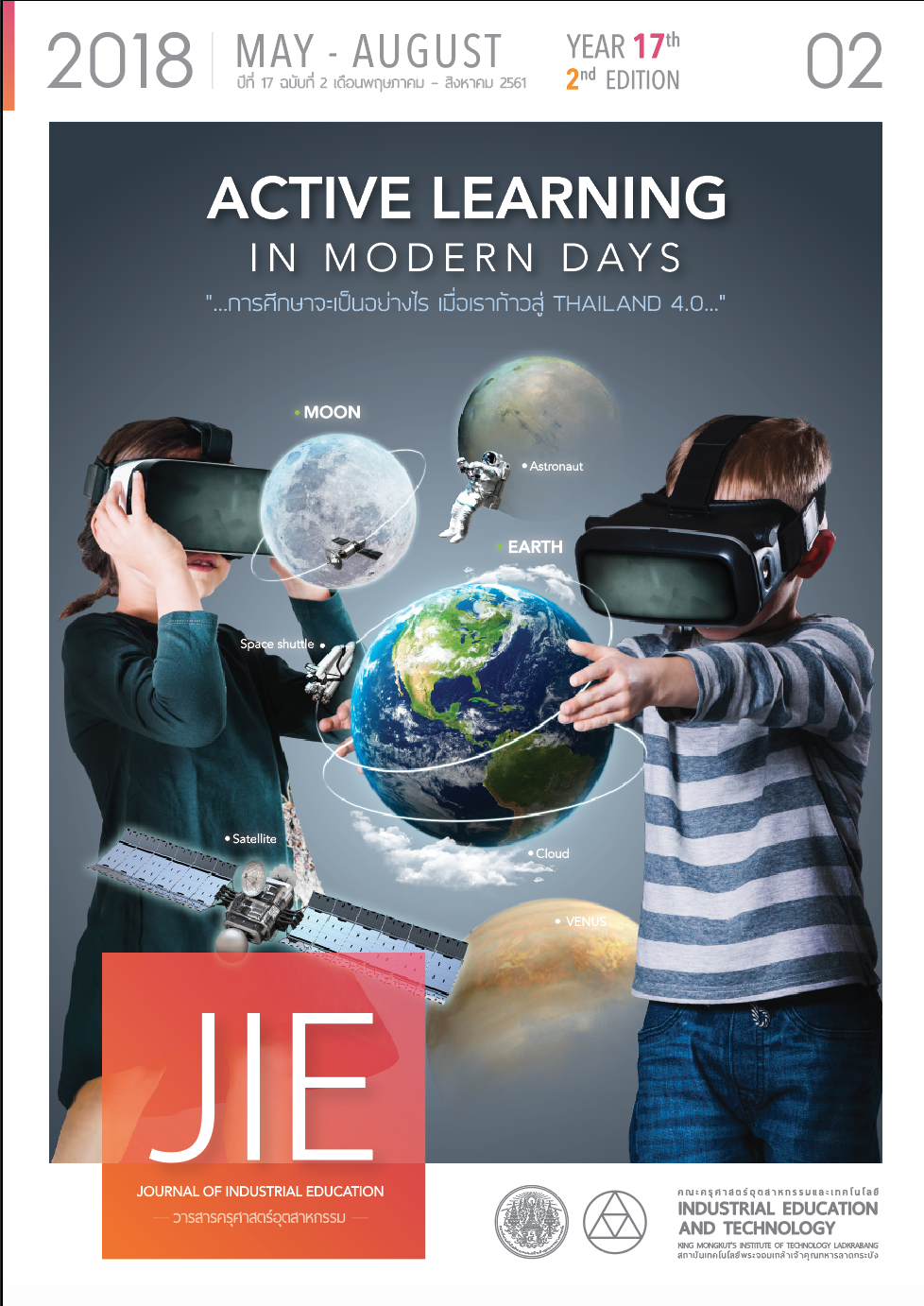DEVELOPMENT FOR TEACHER LEADERSHIP BASED ON GROWTH MINDSET OF GOVERNMENT TEACHERS AT SCHOOLS UNDER THE JURISDICTION OF THE SECONDARY EDUCATIONAL SERVICE AREA OFFICE, AREA 3, NONTHABURI PROVINCE
Main Article Content
Abstract
This study is a survey research aimied to: 1) study the level of teacher leadership based on the growth mindset; 2) To compare the level of leadership classified by demographic characteristics; and 3) To find out the method for development. A questionnaire was used for collecting data; and 340 sets were distributed to samples. The statistical package program was used to analyze and process the data; and the statistical tools employed consisted of frequency, percentage, mean, SD, t-test, one-way ANOVA, specifying the statistical significance value at .05 and Content Analysis.
The results were that: 1) the majority of the respondents were female with aged between 31 - 40 years old, hold a Bachelor was degree, and had been working in extra-large secondary schools; and earn a monthly income between 3,001 – 6,000 baht; 2) the level of teacher leadership under the specified concept overall and individual aspect were at the highest level, having inspiration at the top one, followed by ideology, learning, development, and courage in creative expression, respectively; 3) the level of educational background makes a difference on learning at the level of .05 statistical significances; 4) the size of school factors makes a difference on the level of leadership at .05 statistical significances; 5) the method for development consisted of pro-active learning process, and sustainable and systematic operation. The specifications on inspiration, ideology and learning, - which were currently and importantly required, were the knowledge beneficially gained from this research.
Article Details
"The opinions and contents including the words in papers are responsibility by the authors."
"ข้อคิดเห็น เนื้อหา รวมทั้งการใช้ภาษาในบทความถือเป็นความรับผิดชอบของผู้เขียน"
References
[2] Pharadawisit Srivichairat. 2010. Teacher ’ s Quality and Educational Quality. Bangkok: Catholic Educational.
[3] Pariyaporn Tungkunanan. 2014. A Development of the Administration Model of Teacher Training Center of the Faculty of Industrial Education at King Mongkut's Institute of Technology, Ladkrabang. Journal of Industrial Education, 15(1), p. 38-45.
[4] OECD. 2012. PISA 2012 Results in Focus. Retrieved October 13 2017, from https:// www.oecd.org/pisa/keyfindings/pisa-2012-results.htm.
[5] Wijarn Panich. 2010. Teachers for Learners. Bangkok: Amarin Printing and Publishing.
[6] Kritsapong Keeratikorn. 2014. The Development of Teacher ’ s Standard. The 2nd Teacher’s Reform Conference. 24 January 2014. (Brochure).
[7] The office of Basic Education Commission. 2016. Guidelines of the Development of Learners. Retrieved October 13 2017, from https://www.bct.ac.th/patriroob/neawtang_l.pdf
[8] Dweck, C.S. 2006). Mindset : The New Psychology of Success. New York: random House.
[9] Educational Psychology Certer Yuwasatheerakhun. 2017. Growth Mindset. Retrieved October
25 2017, from https://www.cepthailand.org/index:php’mo=59&ic=1108752.
[10] Teerakiat Jareonsettassin. 2017. Growth Mindset and Educational. Retrieved October 25 2017, from https://www.moe.go.th/moe/th/news/detai/php?=48109&key=news_act.
[11] Secondary Educational Service Administration Organisation Area 3. 2017. Teaching Manpower. Retrieved October 25 2017, from https://www.secondary 3.go.th/main.
[12] Likert, Rensis. 1967. The Method of Constructing and Attitude Scale In Reading in Fishbeic,M .Ed. , Attitude Theory and Measurement. New York: Wiley & Son.
[13] Bass & Avolio. 1994. Improving Organization Effectiveness Through Transformational Leadership. California: Thousand Oaks.
[14] Moon, J. A. 1999. Reflection in Learning and Professional Development. London: Kogan Page.
[15] Pornpimol Prasongporn. 2007. Teachers and Knowledge of English Educational Management. Journal of Academic, (July-September), p. 12-17.
[16] Wijarn Panich. 2012. Building Learnihg for Learners. Bangkok: Thatha Publicatiow.
[17] Paitoon Sillarat. 2011. Creative Leadership and Photo Production New Process and New Educational Leaders. Bangkok: Chulalongkorn University Press.
[18] Kanyarat Metheeweerawong Et. al. 2016. The Development of The Indicators of Teacher ’s Leadership in World-Class Standard School. Doctoral Dissertation Srinakhari, Srinakharinwirot University.
[19] Leithwood et al. 1999. Changing Leadership for Changing Times. Philadephia: Open University Press.
[20] Chainate Kromthamma. 2016. Leadership of Music Teachers in Learning Management. Secondary Education Service Administration Organisation Area 20.
Master ’ s thesis, Kalasin Rajabhat University
[21] Kohlreiser. 2013. Learning Leadership. IMD Real World Real Learning.
[22] Halbert, J. and Kaser, L. 2013. Innovative Learning Environment: Developing Leadership in British Columbia in Leadership for 21st. Century Learning. OECD.
[23] Prachuap Cheangphoti. 2014. Opinions of Teachers Toward the Roles of Administrators in the Development of Team Bulding of Teachers, Bungkhum District, Bangkok Metropolitan.
Master’s Thesis, Ramkhamhaeng University.
[24] Somsak Dolprasit. 2009. Suggestions on Education Reform 2009-2012. Bangkok: Teachers Council of Thailand.
[25] Phatsara chosen.2015.The Academic Leadership of School Administrators under the Office of Nakhon Si Thammarat Primary Educational Service Area 4. Master’s Thesis, akhon Si Thammarat Rajabhat University.
[26] Tubin, D. 2013. Learning leadership for Innovation at the System Level: Israel. in Leadership for 21st. Century Learning. OECD.
[27] Somchai Rungrueang and Teerawat Chantheuk. 2017. Model of the Development of Leaders in Creative Motives. Veridian E-Journal. Silpakorn University, 10(1), p. 29.
[28] Thawin Srijai nagrm and Wesirindhorn Singihdawong .2015. The Development of Transformational Leadership in Secondary Schools Secondary Education Service Administration Organisation Area 1 and Area 2. Journal of Eastorn Asia Academic, 5(3), p. 168-181.

